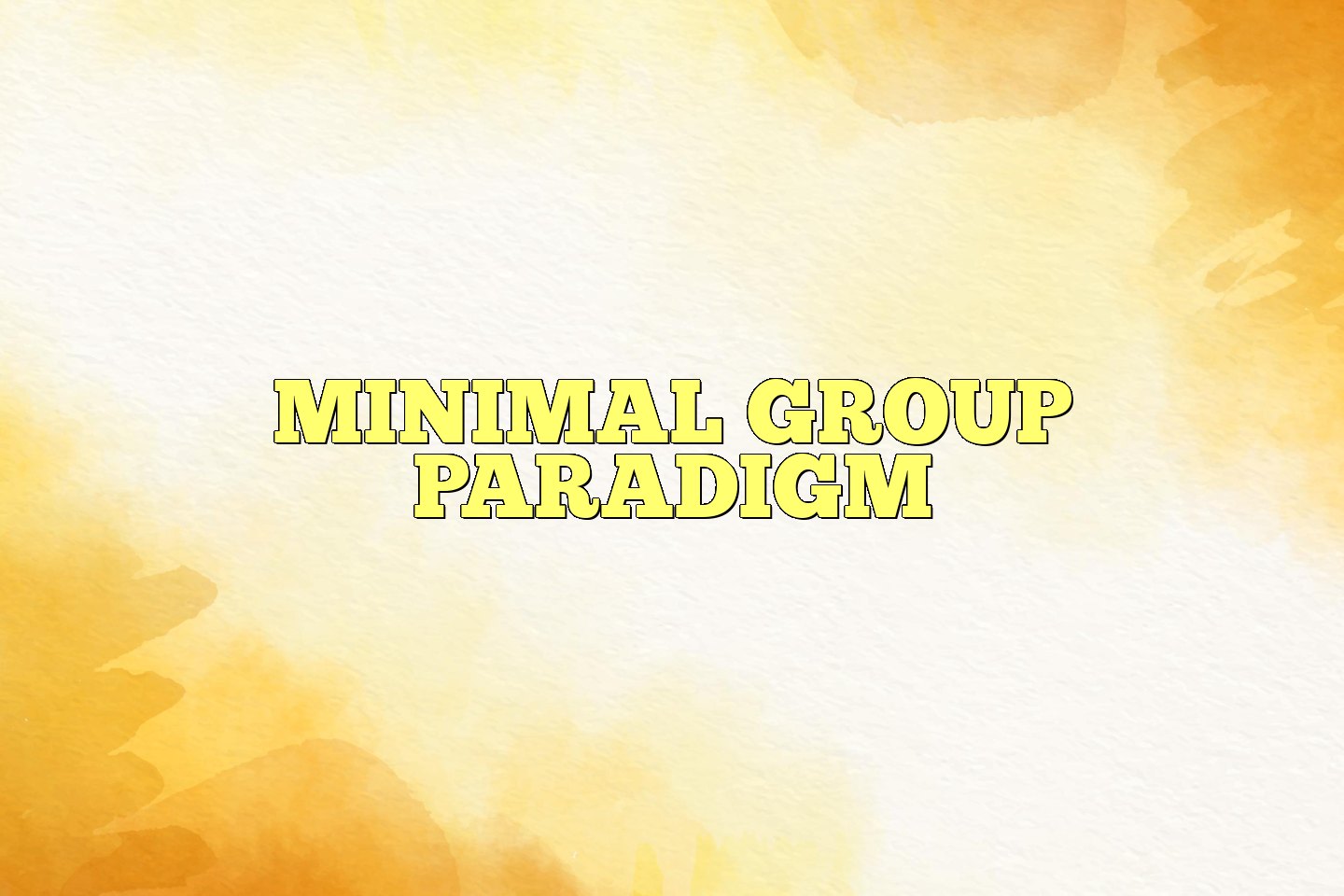The Minimal Group Paradigm is a concept that has been extensively studied in the field of social psychology. It refers to the phenomenon where individuals tend to form groups and favor those who belong to the same group, even in the absence of any meaningful or significant differences between the groups. This paradigm has been a crucial tool in understanding the dynamics of intergroup behavior and has shed light on the underlying mechanisms that drive human behavior. In this essay, we will explore the concept of the Minimal Group Paradigm in detail and discuss its significance in social psychology research.

The Minimal group paradigm (MGP) is a methodology employed in social psychology (e.g. Tajfel, 1970) to investigate the minimal conditions required for discrimination to occur between groups. Experiments using this approach have revealed that even arbitrary and virtually meaningless distinctions between groups (e.g. the colour of their shirts ) can trigger a tendency to favour one’s own group at the expense others.
Social identity theory and self-categorization theory explain this phenomenon by proposing a process in which ingroup members seek to build collective esteem by making social comparisons with other groups. For example, ingroup members often attribute the achievements of outgroups to luck or circumstance. On the other hand, their own successes are seen as reflecting their inherent qualities and as a validation of their ethos. This process of attributing one’s own group’s achievements to internal causes and the outgroup’s achievements to external causes is related to the fundamental attribution error. Ingroup members also make biased comparisons with less fortunate outgroups to support the validity and legitimacy of their beliefs, values and behaviours. This allows them to distinguish themselves from outgroup members by exaggerating their differences and enhancing intergroup boundaries. Threats to distinctiveness in minimal groups are often overcome by making more biased social comparisons, expelling black sheep and re-categorizing the ingroup to exclude members that share outgroup values.